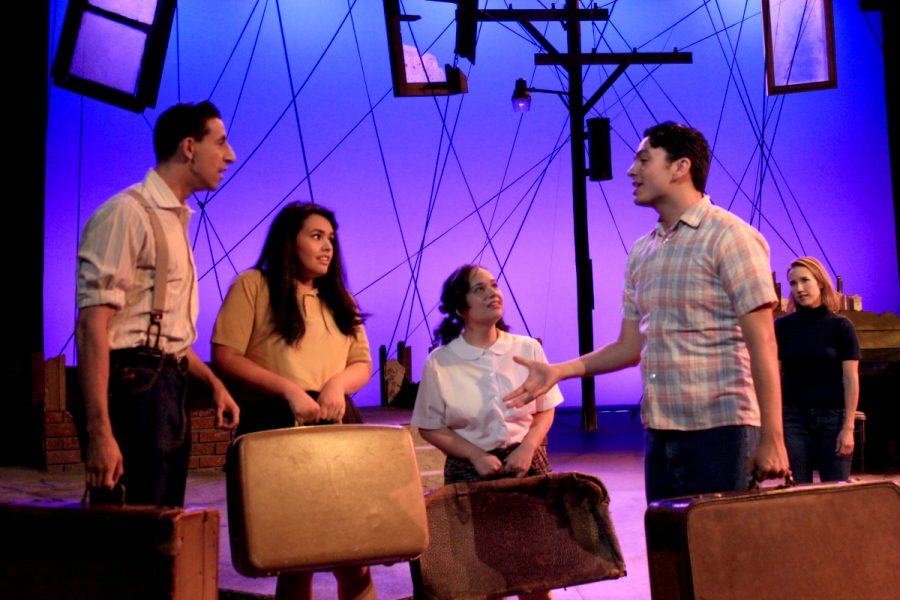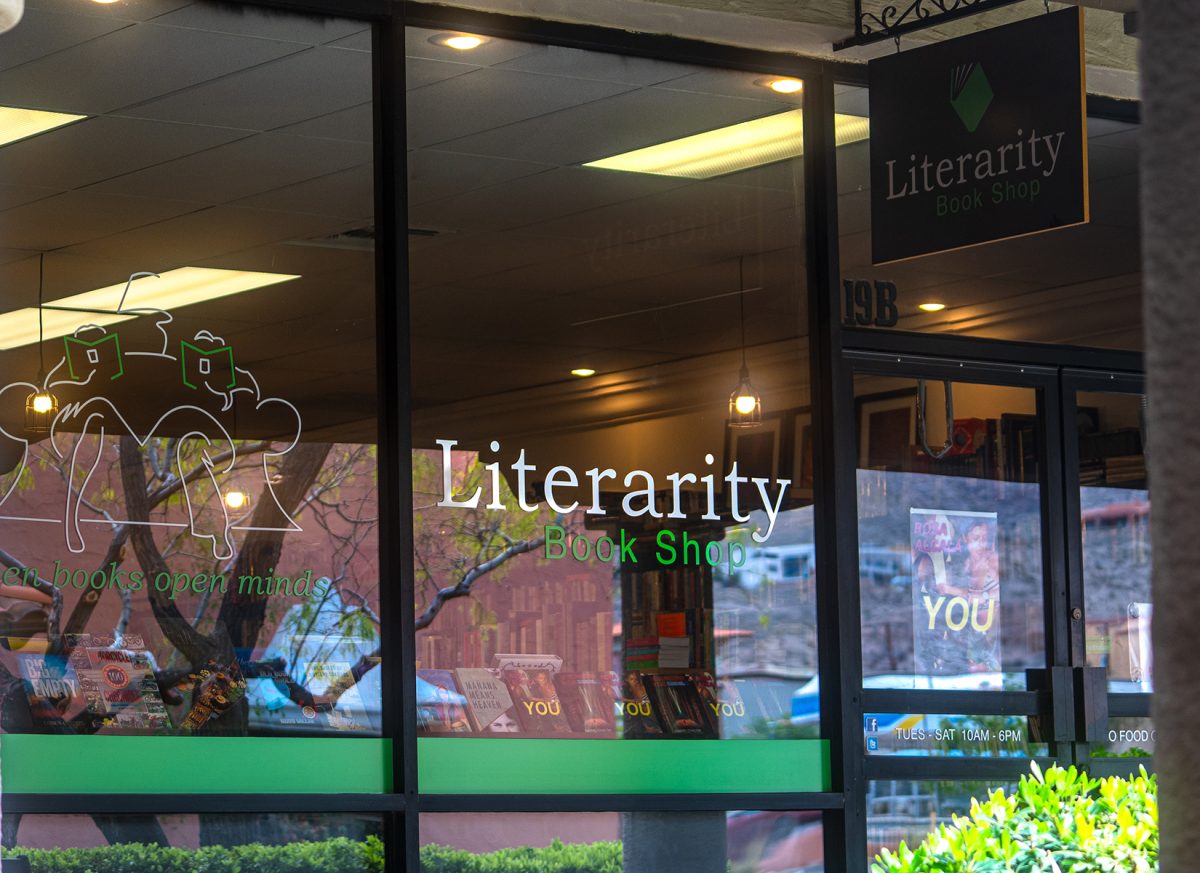UTEP’s Theater and Dance Department debuted “The House on Mango Street” on Sept. 22, bringing a mix of UTEP faculty, students, and children to experience the beloved novel in a new format.
The play takes place in Chicago during the ‘60s, a young Latino girl named Esperanza finds out what life as an adolescent can be, the good and the bad, experiencing new friends and a strong sense of family while dealing with sexual abuse and poverty in her Latin neighborhood.
Nancy Batres, a senior theater major who played the main character Esperanza, has performed in the Wise Family Theatre seven times and was completely thrilled when she found out that she had gotten the role of Esperanza.
“I was watching a TV show and I received the email,” said Batres. “But then I got that feeling of, I definitely want to do it justice.”
The stage was set to give the audience a similar description of what life for Esperanza was like. Telephone wires crisscross each other from the ceiling to the floor, slabs of broken pavement sit on each corner, and two broken houses look as if they were bombed while windows dangle above them, all the while a single telephone pole stands in the middle of it all.
The minimal stage transformed the stage decorations into other objects. A chair turned into the steering wheel of a yellow Cadillac or the seat of a bicycle with a simple phrase.
The lighting was the glue of the play, helping transition the scenes within and gave the audience a sense of being in the ‘60s.
One scene in particular stands out: a cousin is chased by the police and as sirens go off, the lights make the scene look realistic and thrilling.
The lights also set the mood for each scene to portray the feeling of each character. When Esperanza was comparing herself to the tiny trees on the sidewalk, the light was dim, a grayish blue that gave the feeling of sadness mixed with a sense of peace because Esperanza knows who she is. When domestic abuse takes place in Esperanza’s neighborhood, the stage was thrown into a deep red light, the color of a young girl’s bloodied face.
In many ways I got caught in the ‘60s, with slicked-black hair, bandanas, platform boots and big hoop earrings. Each character played multiple roles to bring the performance together, but I wondered during the play if that was due to a lack of people wanting to audition or if it meant that Esperanza’s community was a tight-knit group.
Unlike classic theater, “House on Mango Street” utilizes an active narrator, an older Esperanza speaking about the past and what she remembers about it. Throughout the play, younger Esperanza talks to the narrator, showing the close connection between older Esperanza and her past.
People seem to have forgotten how important theater can be. When viewing plays, one has to use their imagination, but in today’s society we have lost our use of imagination. Watching “The House on Mango Street” allowed not only myself but everyone in attendance to use their imagination. Day to day we lose the imaginary part of life, where dreams can actually become reality, but only if we still use our imagination along the way in the journey just as Esperanza imagines leaving Mango Street.
Plays bring imagination back to life because growing up in the world today, we have technology to think for us instead of using our “creative juices” to produce great ideas.
“The House on Mango Street” covers serious issues that may put life into perspective for the public, but for many young Latina girls in the El Paso community that they are not the only ones dealing with these issues.
Performances for the rest of the month are on Sept. 29 through Oct. 1 at 7:30 p.m. and Oct. 2 at 2:30 p.m. Tickets range from $9-$14 and may be purchased an hour before the show at the Wise Family Theatre.
Shericka Lawrence may be reached at [email protected].








